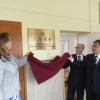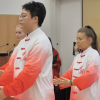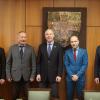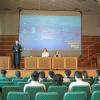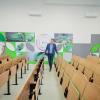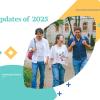All for one, one for all
2025
Jun
06
Inclusivity. What does this word mean? For the University of Pécs (PTE), it means that everyone has equal opportunities and respect, regardless of their background, abilities or any other individual characteristics. The PTE Support Service, under the auspices of the Directorate of Academic Affairs (OIG), has been helping students and employees with special needs to make everyday life easier for over 20 years. However, for the institution, inclusiveness is not just about providing assistance; it is the foundation on which a truly universal community is built.
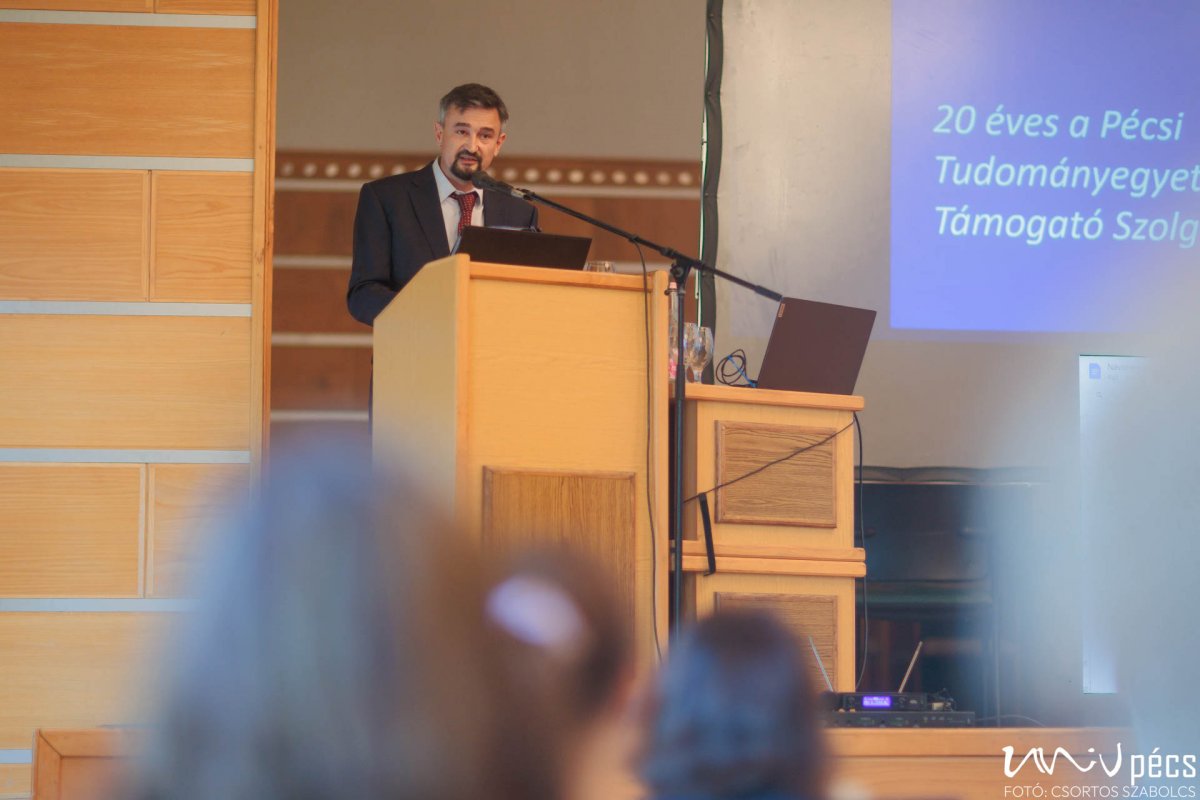
This family spirit was also reflected in the anniversary conference held on 5 June, where Csaba Magdali, Head of the PTE Support Service, was the first to give a welcome speech, emphasising that
equal opportunities, inclusion and a student-friendly approach are key values in the institution's strategic mission statement.
As an institution, we are committed to quality service delivery and to building cohesive, open communities. It rejects all forms of discrimination and actively promotes social inclusion, with a particular focus on disadvantaged students and staff with disabilities. An important tool for achieving these objectives is the Support Service, which contributes effectively to an inclusive university environment.
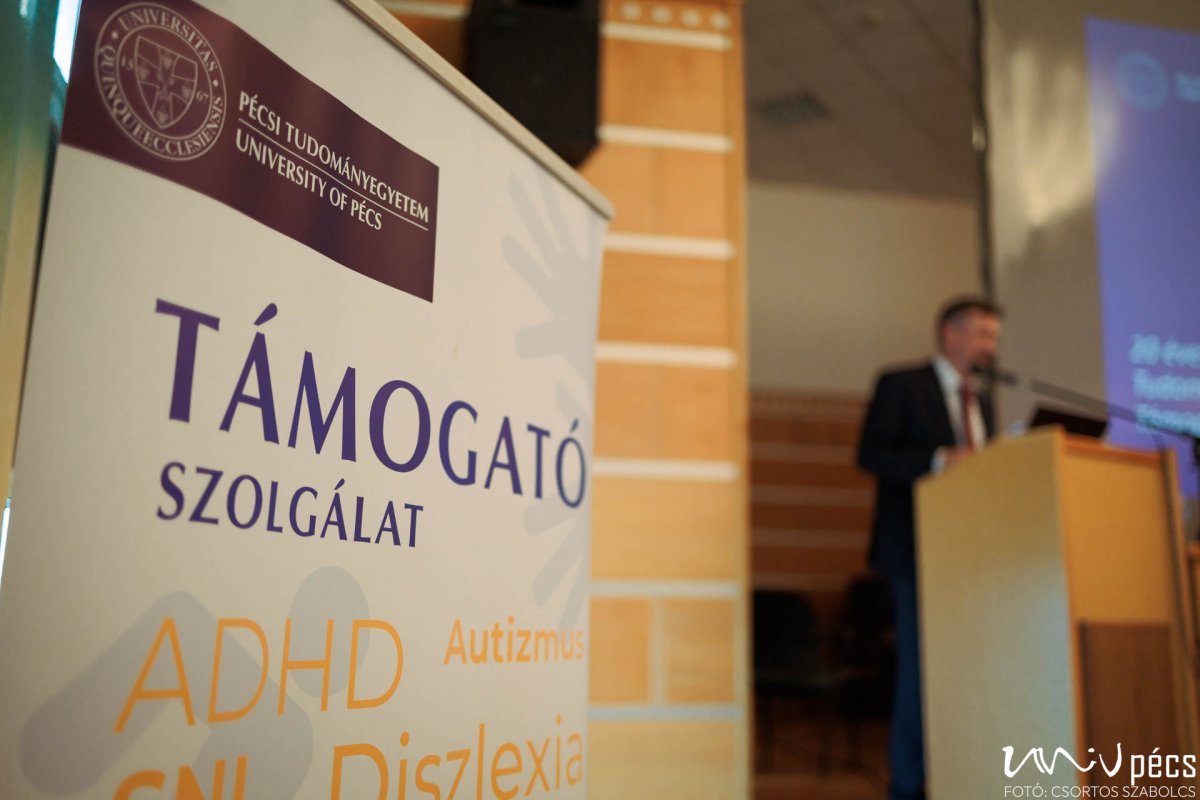
“My goal is just to learn and gain new experiences, new knowledge and to get as far as I can.” - the head of service recalled the words of a severely disabled enquirer with whom he had recently come into contact, and added: “We are going to help him in this.”
Founded in 2005 on a student initiative, the Support Service has helped hundreds of students and staff over the past 20 years
Csaba Magdali, Head of Service, invited us on a journey through time, presenting the work and important milestones of the service so far. He humorously remarked that even the famous poet and former alumnus, Sándor Weöres,
wanted to be a citizen of the city of Pécs, like everyone else.

There are currently 277 students with special needs on the university register, but the actual number could be much higher, as many of them have neither a diagnosis nor an official registration. The Support Service has 113 registered students,
of whom around 30-40 receive regular support, even on a daily basis.
Whereas two decades ago there was only one coordinator trying to find the students concerned, today there are eight specialists with specific knowledge working for the service.
At the same time, it is important to stress that supporting students and creating an inclusive university environment is not the sole responsibility of the Support Service.
This work is carried out jointly by the university's leadership, lecturers, academic departments, various committees, the Student Government and the students themselves.
The new attitudes and values developed in these partnerships have enabled students with disabilities to participate as fully as possible in the learning pathways they choose. “The mission of the Support Service has always been about finding a way,” the head of service stressed.
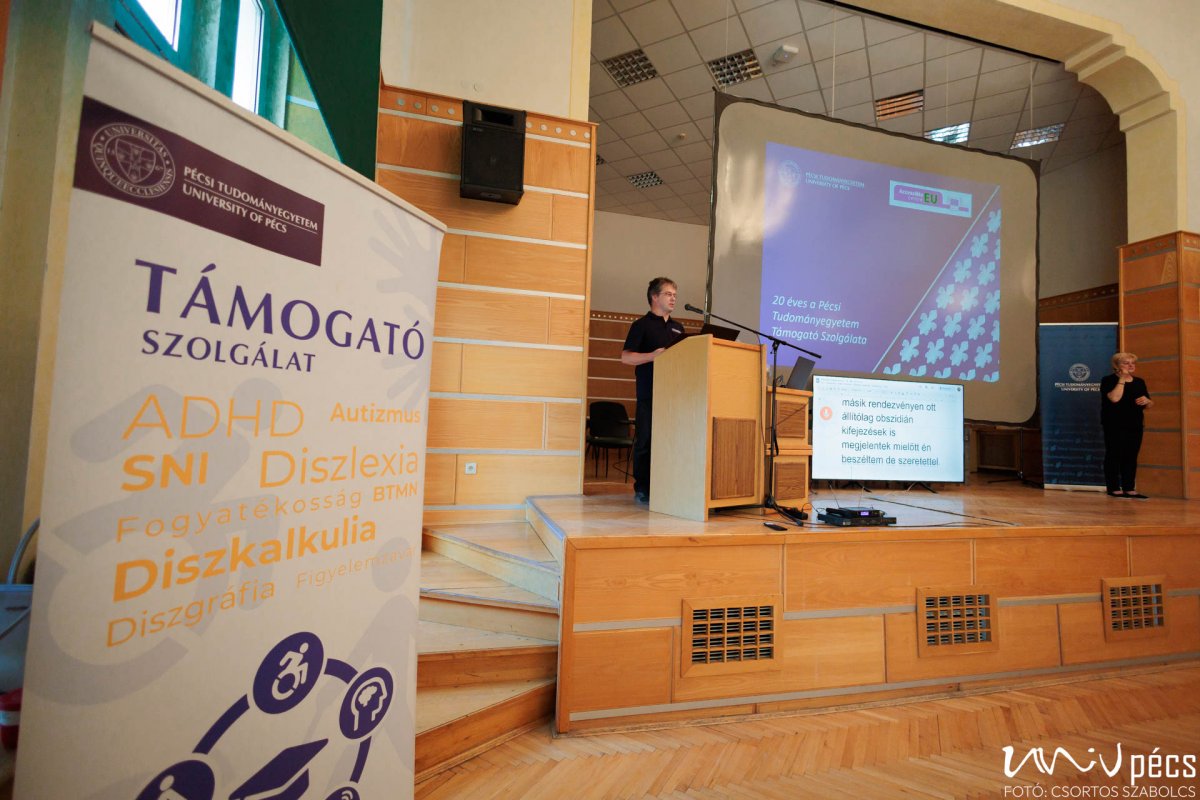
The co-organizer of the conference, national expert of Accessible EU, Dr. Tamás Laki, emphasized in his speech that
the issue of equal opportunities cannot be limited to one single field, as everyone, in any job, has some form of responsibility for the implementation of these principles.
He stressed that we can only talk about real progress if people with disabilities have the same access and opportunities to public and higher education as everyone else. Until this happens, the mission of creating opportunities cannot be considered as accomplished.
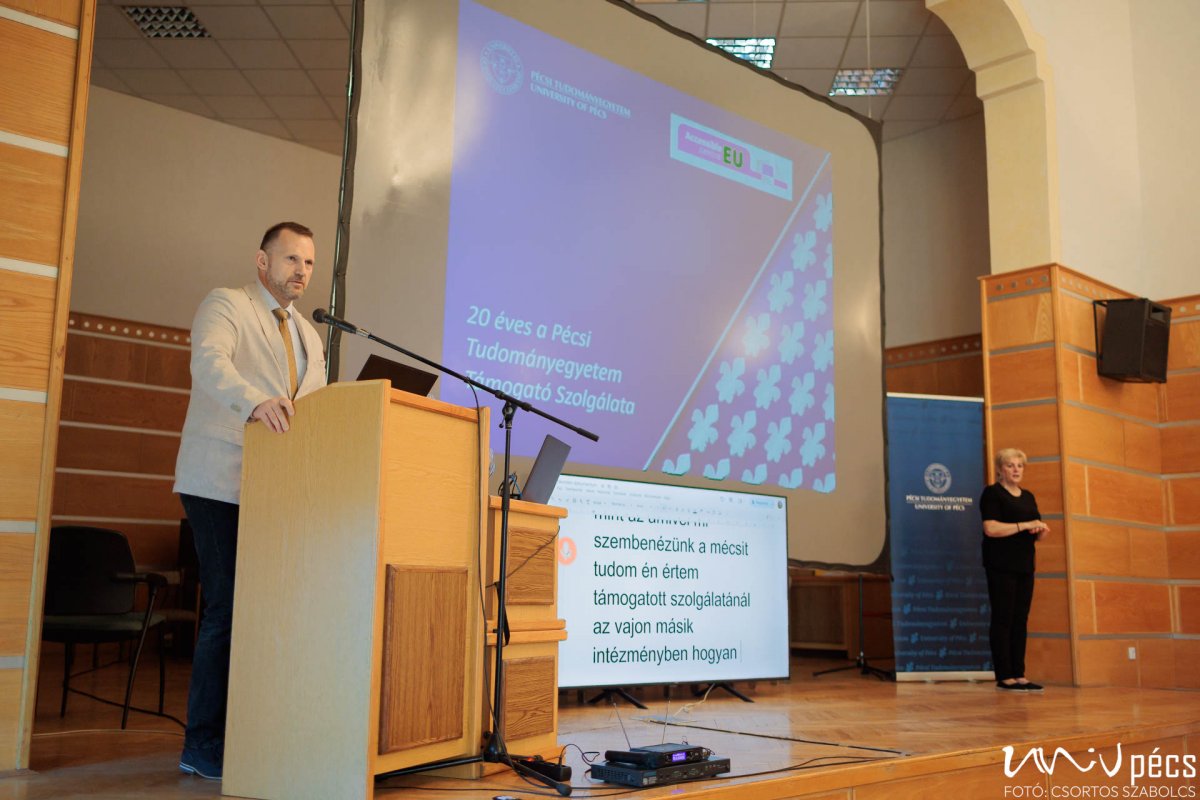
"I am convinced that our students with special needs are just as talented as their healthy peers and that any one of us could easily become a person of concern overnight.
In the 21st century, we therefore have a duty to support, mentor and empower them at both an institutional and individual level.
As an educator and as a specialist in charge of the education portfolio, this mission is an integral part of my daily work. At this point, I would like to thank Csaba for his ten years of service as the head of the Support Service, without which we would not have reached the current level of exemplary inclusiveness," said Dr. Tamás Fedeles, Vice Rector for Education of PTE, who later highlighted the outstanding work of Attila Lengvárszky, Director of Education, and added that in addition to students with disabilities, we must also pay more and more attention to those with mental health problems, because their path is often more invisible, but no less bumpy.
“Our goal is to make the University of Pécs an institution where every student can find his or her place, and where he or she can rely on us, the teachers, the staff, the whole PTE family,” concluded his speech.
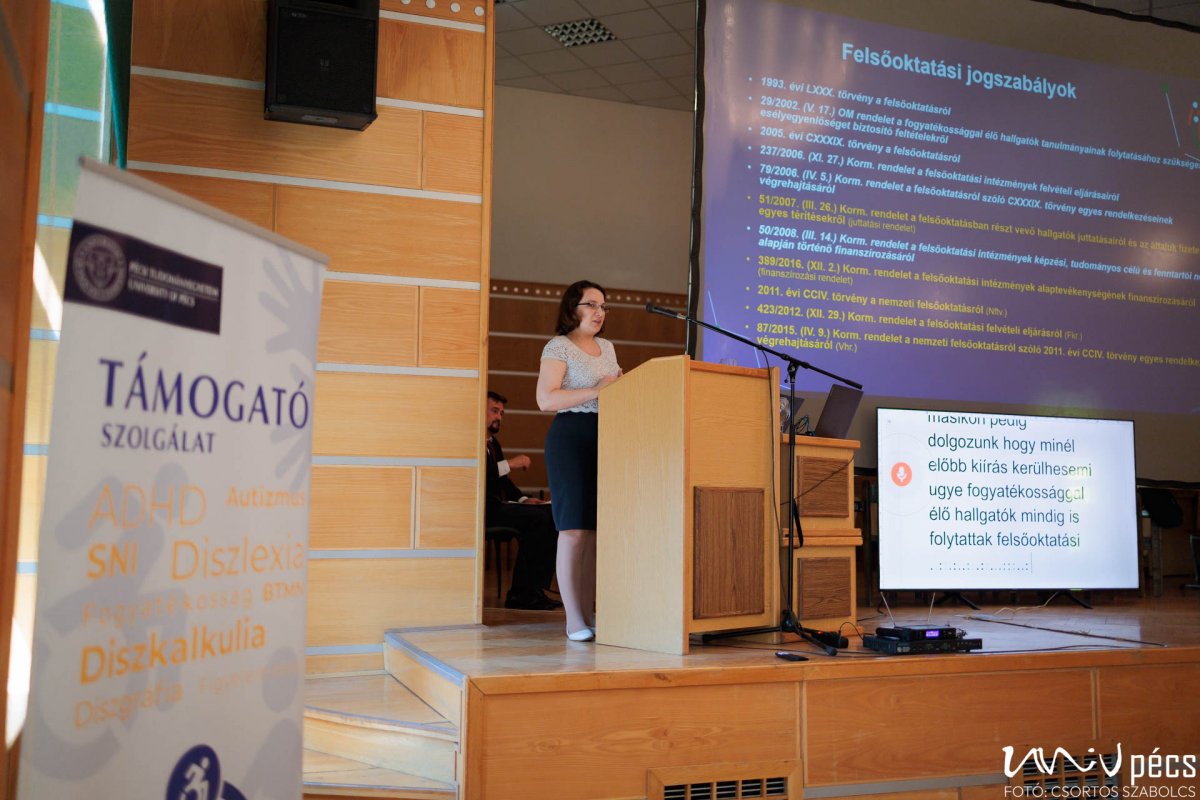
The opening lecture of the conference was given by Marianna Horváth, Senior Government Advisor at the Ministry of Culture and Innovation, entitled “Disability in Higher Education”, in which she outlined the legislative environment that currently determines the support for students with disabilities and presented some relevant statistics, which reflect the current situation of higher education in Hungary in this area, showing that PTE usually ranks third or fourth in the country in terms of inclusiveness, reflecting its commitment to creating an inclusive and supportive higher education environment.

The event included a series of exciting and thought-provoking presentations and workshops. The second was a presentation by Dr. Ágnes Sarolta Fazekas-Vinkovits, Assistant Professor at the Institute of Disability and Social Participation, ELTE BGGYK, entitled “From target group-oriented support towards universal planning”. Afterwards, Dr. Tamás Laki, architect, rehabilitation engineer, national expert of Accessible EU, spoke on “The accessibility challenges of higher education in the light of new national and EU legislation and standards”. The next speaker of the programme was József Hári, Vice-Chair of the MESF Parasport Committee, who shared his experiences on “Parasport as an integration opportunity at universities”. Afterwards, Inez Zsófia Koller, Adjunct Professor at the Faculty of Humanities and Social Sciences and lecturer at the Social Inclusion Collegium, gave a presentation on “Gamification in the formation of attitudes towards people with disabilities”.
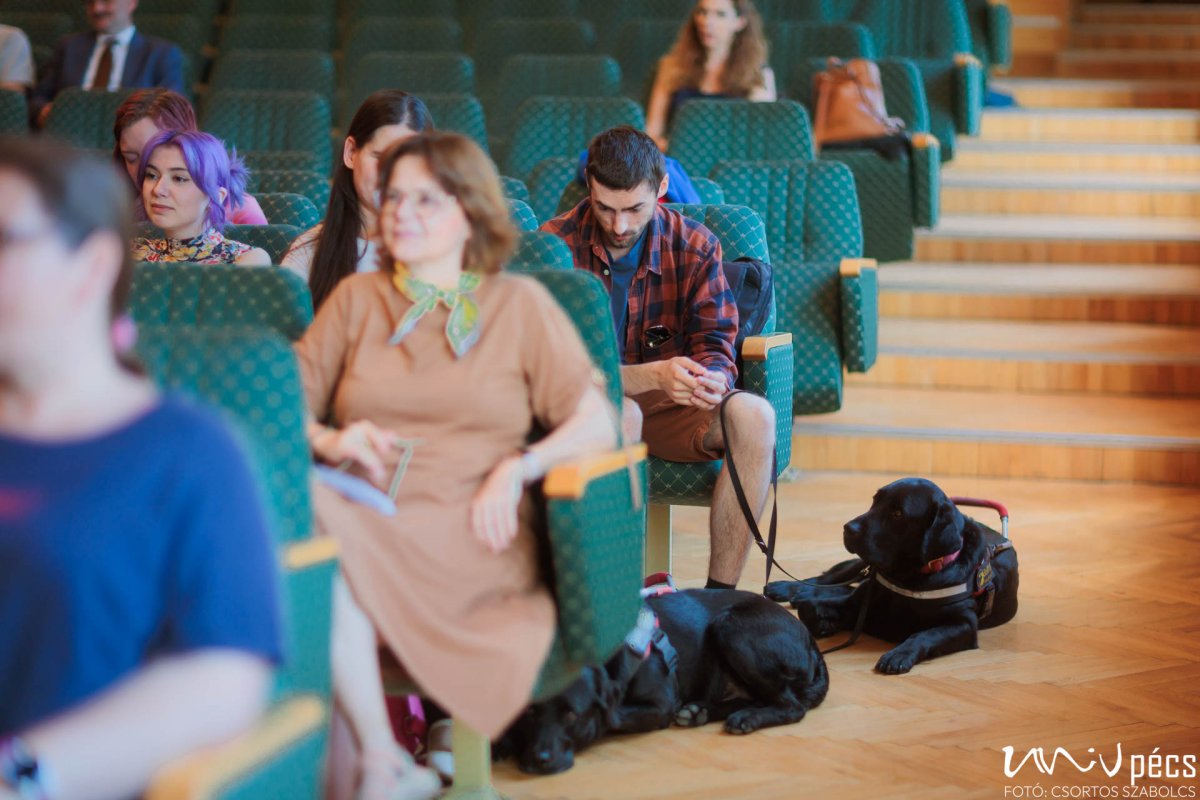
The afternoon session continued with workshops that approached the topics from a practical perspective. They dealt with current issues of the situation of neurodivergent students, dilemmas and techniques of curriculum adaptation, ways to prepare students for independent living and how to empower students with disabilities to be socially active. The day ended with a joint sharing and summarising of the experiences gained during the workshops. During the conference, special attention was paid to barrier-free communication: a live text display programme and sign language interpretation ensured full and equal access to information for visually and hearing impaired university citizens.
The PTE family is a large, welcoming community that accepts all visitors unconditionally.
The University is striving to be even more accessible, even more barrier-free, for its citizens with special needs. This is demonstrated by the work of the Support Service, which has been operating for 20 years.
For more information:
https://tamogatoszolgalat.pte.hu/en
- Log in to post comments
University of Pécs | Chancellery | IT Directorate | Portal group - 2020.
